Year of the Dragon – expectations of the gastronomy sector for 2024
Chinese astrology predicts the awakening of great energies in the Year of the Dragon, which will most likely be marked by big changes, and the prediction is that these changes will be to our benefit.
This article is available for reading in Trade magazin 2024/2-3
2023 was rather a mixed bag for hospitality professionals, with some having a smooth ride and others having a worse year than the previous one. After Covid Hungarians dared to travel again, foreign tourists have started coming to Hungary in large numbers, and demand has shifted back towards Budapest.
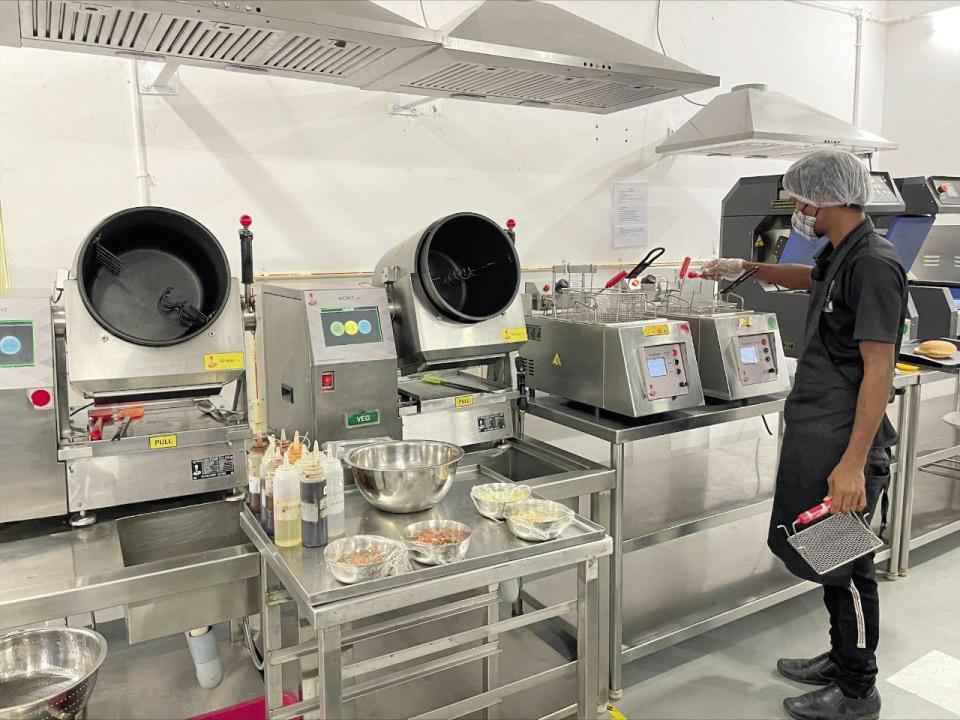
Experts predict an acceleration in the penetration of artificial intelligence (AI) in hospitality worldwide by the end of this year
The question is who is left standing
The industry was afraid of a big wave of closures and experts predicted the same, but fortunately the dreaded 30-50% rate has turned into roughly 8% by the end of 2022, which means about 4,000 catering establishments. In the first four months of last year 1,000 places closed – reported the Central Statistical Office (KSH). László Kovács, president of the Guild of Hungarian Restaurateurs (MVI) sees restaurant closures as a generational issue, with the more energetic younger generations feeling the strength to continue, and being more receptive to change. There is one thing we know for sure: 2024 won’t be a quiet year.
No quiet hour
In 2024 restaurant owners still don’t know for sure how long the food inflation will continue to rise (which is actually much higher for restaurant owners than for consumers), how high energy prices will be, how long guests will tolerate price increases, and whether there will be enough staff. People are spending less money in bars and restaurants as their cost of living increases. The industry’s workforce problems are partly being solved by the arrival on the labour market of colleagues who have been made redundant in the restaurants that closed, and people are also coming back from other sectors that are slowing down, e.g. construction.
Challenges and responses
Regardless of restaurant closures, the everyday choice of food is growing in and around the cities. According to industry trend experts, traditional restaurants will face stronger competition from shop-in-shop retail outlets and petrol station snack bars, plus vending machines will also become a big rival as technology develops. The development of food delivery is driven by the growth in consumer demand, for instance shorter delivery times are now a basic requirement. Artificial intelligence based solutions are making a great contribution to shorter delivery times. There are still plenty of opportunities for restaurants to streamline their offerings and increase their appeal – from innovative menus and experience-focused dining to guest data processing.
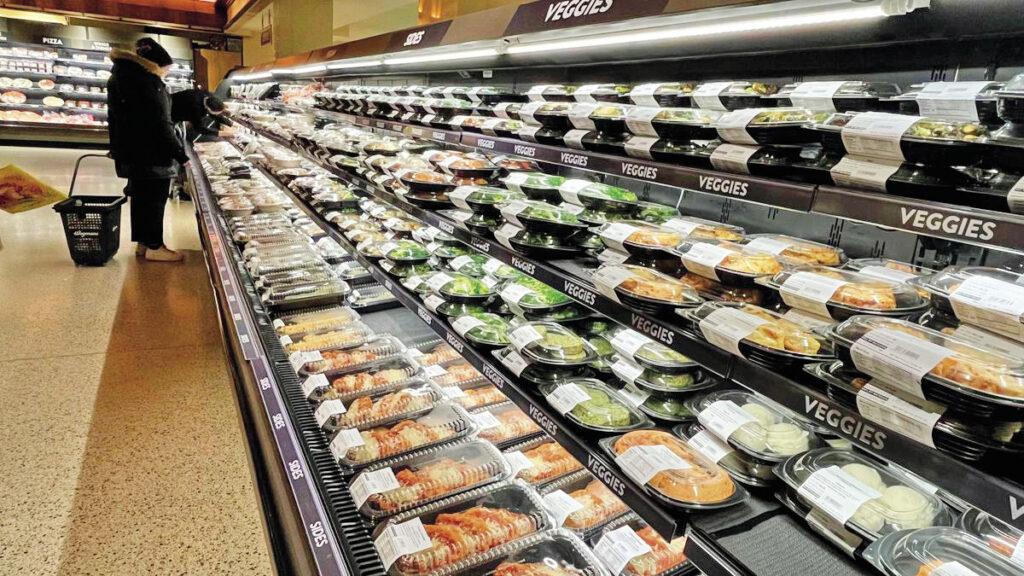
Retail shops started to become a significant competitor to hospitality a decade and a half ago – a process that has now accelerated to an extreme. For example, the Manhattan store of grocery chain Wegmans, which opened in December, offers ready-to-eat and almost-ready-to-eat “restaurant” food on thousands of square feet of an entire floor
Digital support
Globally experts forecast acceleration in the spread of artificial intelligence (AI) in the hospitality industry this year, as various AI applications are becoming more readily available in the market. Reducing food waste, increasing marketing efficiency, optimising staff scheduling – these are all areas where AI is already aiding restaurants in their day-to-day work. As the AI market is expanding very fast, we can expect to witness the emergence of software that can help restaurants optimise all aspects of their operations – from reducing costs to improving guest relations.
Surprising and extraordinary!
Various studies show that people are looking for an extraordinary experience when choosing a restaurant – for example in 2023in Australia 84% of potential customers was looking for a surprising menu or theme. The answer to this “challenge” is non-stop innovation, with farm-to-table concepts, fusion dishes, tasting evenings, and cooking classes. It is also clear that customers appreciate it if a restaurant gives them a tangible sign of “belonging together”, especially if it doesn’t do so in an impersonal way. Traditional restaurants can’t compete with fast food restaurants in this respect, but database building and guest relations work can be a serious competitive edge in this category.
In what kind of world will your son take over the business?
A growing proportion of Hungarian consumers is concerned about sustainability and the environment, and is shaping their purchasing behaviour accordingly. Either in response to this consumer demand or on their own initiative, this year we can expect an increasing number of bars and restaurants paying attention to environmental protection – going plastic-free, reducing paper waste or introducing reusable cups and boxes. Cutting down on food waste is expected to become a priority for restaurants in 2024. Waste is a fundamental problem, but old habits die hard. The catering industry is no innocent bystander when it comes to food waste, as often 30-40% of the ingredients they buy end up in the trash. Leftovers can be used creatively and cooking from local produce can not only reduce the carbon footprint of kitchen work, but is also cheaper in many cases.
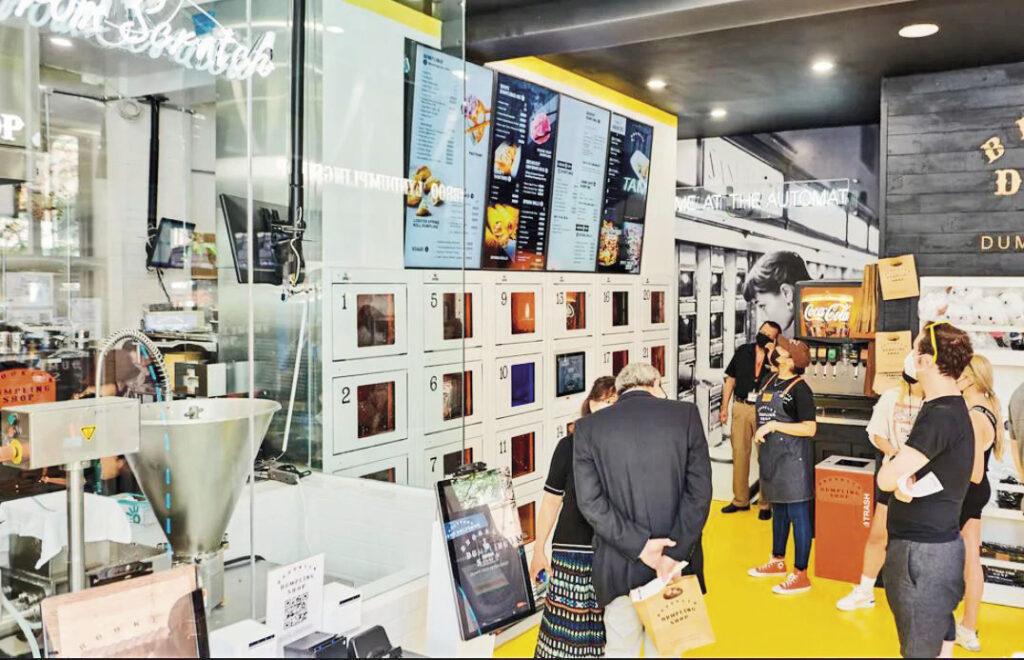
Vending machines are now a staple in workplace catering, they are playing an increasingly significant role in hotel and school breakfast catering, and have recently arrived in fast food restaurants.
Green wins!
Plant-based, vegetarian and flexitarian diets are more and more popular in Europe – with the UK and Germany leading the way. Although the trend is also noticeable in Hungary, the proportion of people who claim to be meat-free is still only about half as in more developed European countries. For Hungarians the motivation for eating less meat is primarily health preservation, the need for sustainability and animal welfare. The findings of a study by the National Association of Plant Based Food Manufacturers and Distributors (NÉGYOSZ) are therefore probably not surprising: almost 60% of those who don’t eat meat or eat less are younger than 35 years (and almost 1.5 times as many are women). According to a Nestlé survey from the end of 2023, 6% of Hungarians would give up meat in the future and 45% would reduce their meat consumption.
New meat!
We don’t think that 2024 will be a breakthrough year in Hungary, but progress seems unstoppable: the world’s biggest food companies and retailers are paying special attention to the production and marketing of plant-based meat substitutes. As meat substitutes are often more expensive than their “normal” counterparts, strong marketing support is needed in this food category. Cultured meat isn’t taking the world by storm yet, but 2023 was a landmark year, as the two largest producers were granted market access by the main US food regulatory authorities (FDA, USDA) and shared plans for new production facilities.

White peach is the trendiest flavouring fruit in Europe in 2024
Everyone is beautiful, everyone is healthy
The unstoppable expansion of functional products is more than a trend; it is much more a pillar of the future of eating. Today it may still be cheaper to supplement the vitamins, minerals and collagens the body needs in the form of tablets, powders and capsules, but this may no longer be the case for proteins, pre- and probiotics, medical CBD and all kinds of other immune boosters. The category of foods made for health preservation (called the Rx category) is taking centre stage in food development, and we believe we won’t have to wait 3 years before AI personalises our diets, telling what to eat to if we wish to stay healthy.


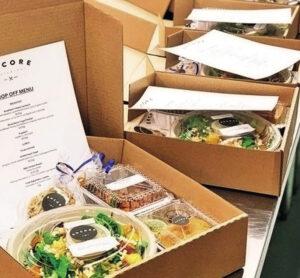

Younger generations do not necessarily stick to restaurant environment when they want to eat out: they want to eat where and when they are
and what they want, so Grab & Go meals are becoming increasingly popular
Flavours and styles
If fusion cuisine has already been trendy recently, the mixing of different flavours from different cuisines around the world is now getting an even bigger boost. The influence of Asian gastronomy is growing fast, and the Western world picks out its latest favourite almost every year. Of course the internationalisation of cuisines isn’t just about mixing flavours, but also about technologies and cooking styles. In the modern world, people are often overcome by a sense of nostalgia, and will gravitate towards foods that remind them of their childhood favourites. Old-fashioned recipes and flavours are also considered by many to be popular with younger restaurant owners, because they are very much part of the vision of the new generation of chefs. //
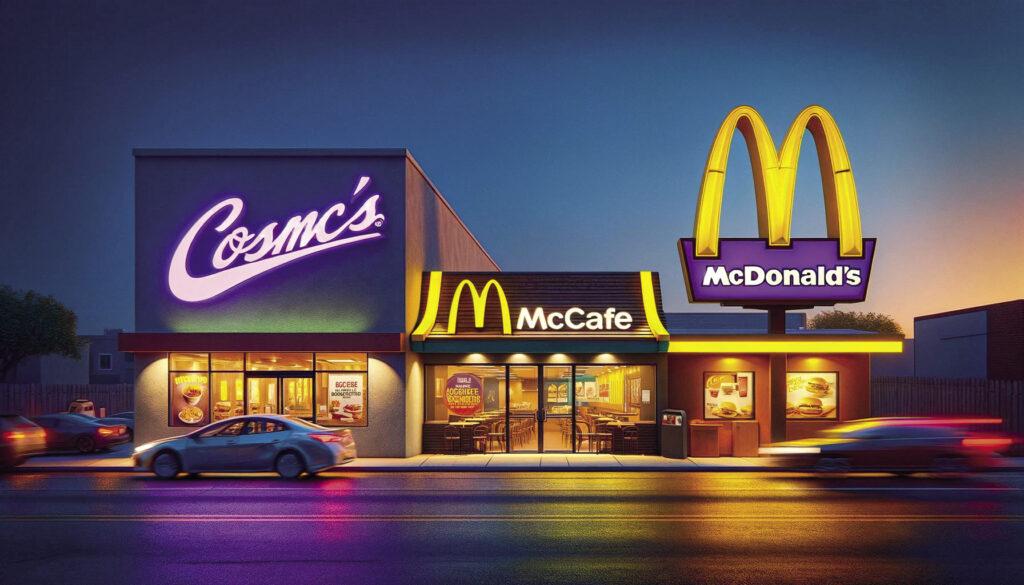
Dead time management, finding new target groups – there are lessons to be learned from fast food chains. McDonald’s’ little brother CosMc’s, which has been on trial since December, focuses on the afternoon downtime with a wide range of customisable drinks and sandwiches. Starbucks’ response is already at hand: they’re developing an afternoon range, focusing on coffee specialities
Related news
Related news
Nestlé to sell remaining ice-cream assets but commits to Froneri venture
🎧 Hallgasd a cikket: Lejátszás Szünet Folytatás Leállítás Nyelv: Auto…
Read more >Lidl guarantees fairer prices for cocoa farmers
🎧 Hallgasd a cikket: Lejátszás Szünet Folytatás Leállítás Nyelv: Auto…
Read more >40 secure jobs, sustainable solutions – new BURGER KING® in Csepel
🎧 Hallgasd a cikket: Lejátszás Szünet Folytatás Leállítás Nyelv: Auto…
Read more >







